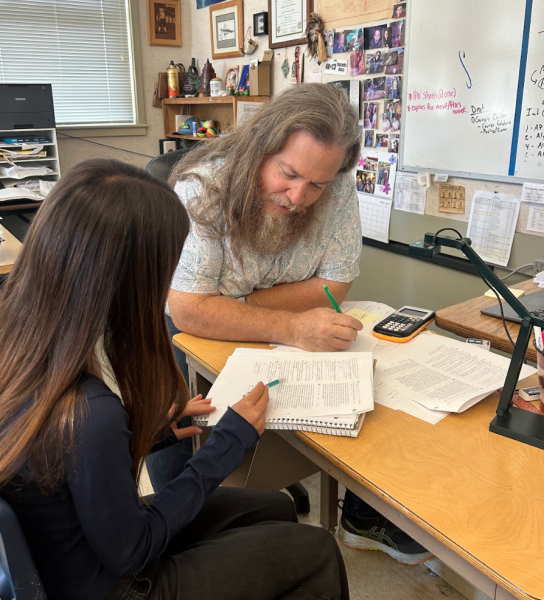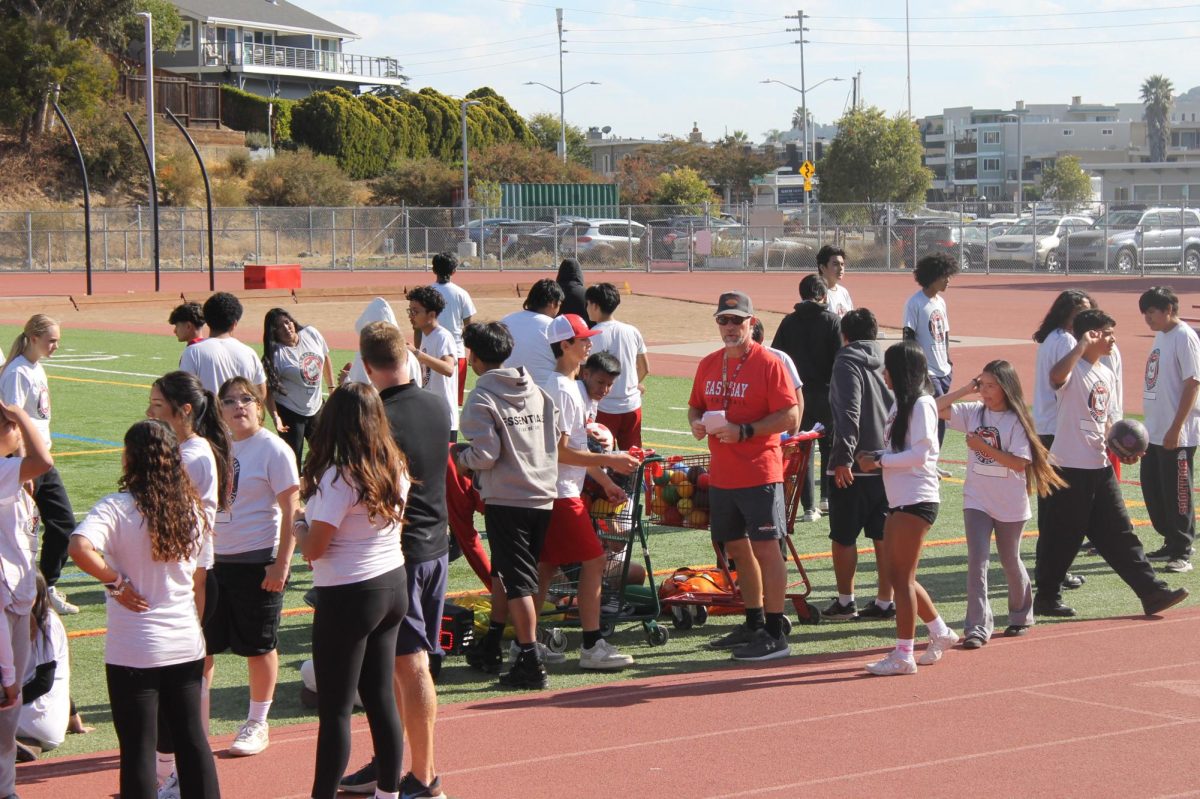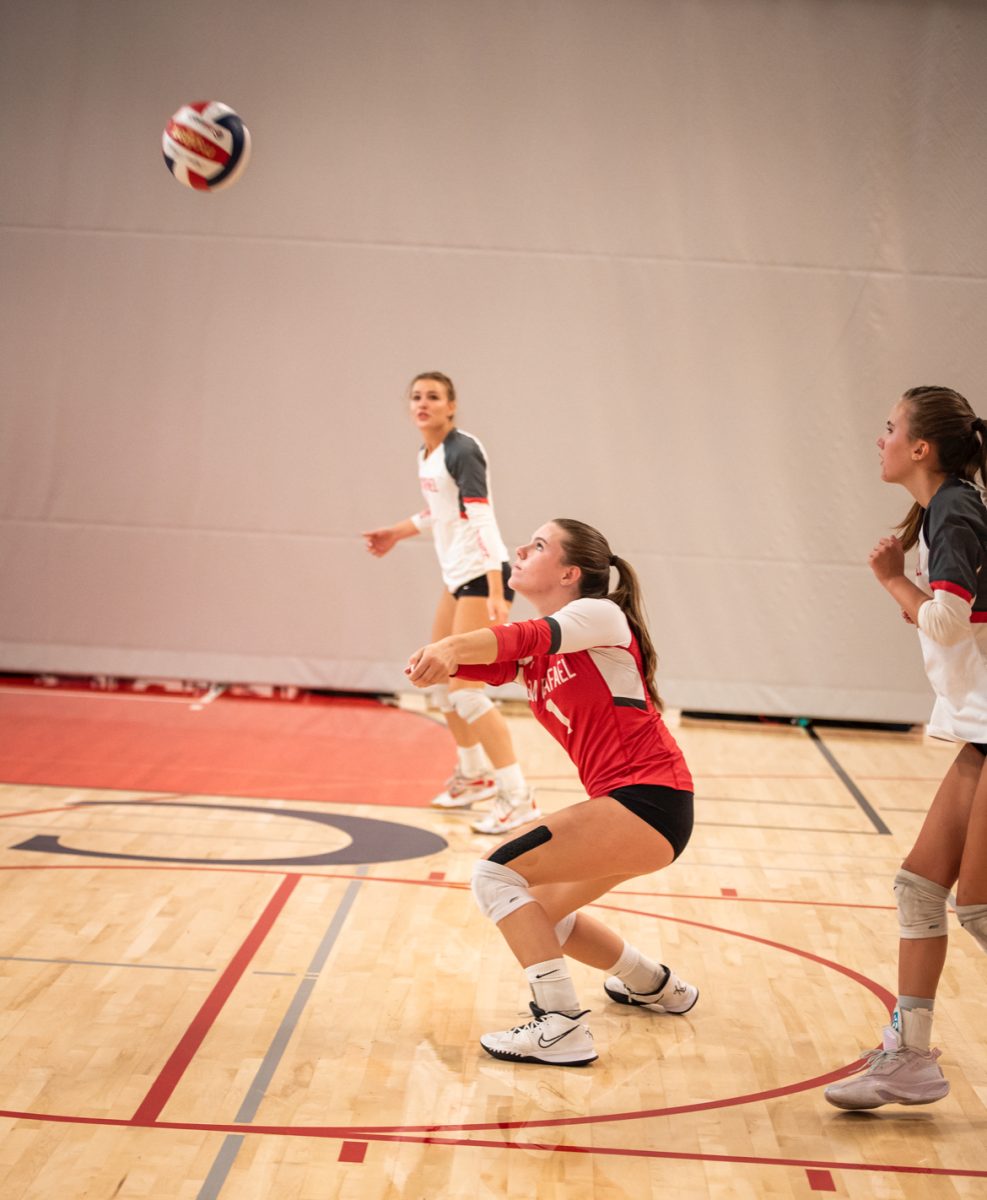As student-athletes return to school and sports this fall at San Rafael High, they are reminded of the balance they need to maintain. Student-athletes may have a harder time academically than other students. They have to meet difficult academic demands and the pressures of competitive sports. While some find motivation to do school work while doing sports, others find trying to manage both aspects of their life sparks a lot of stress.
Many San Rafael student-athletes experience the pressure of managing their time between practices, games, and schoolwork. While some find that sports motivate them to stay organized, and are an outlet for stress, others struggle to find that it can cause more stress and cause them to become burned out.
“I feel like sports teaches me to manage my time…[but] physically it makes me tired spending late nights doing homework after a long practice,” said senior lacrosse player Sierra Balch. “I need to do well in school to qualify for sports, which drives me to finish assignments before practice.” She acknowledges that to maintain a social life and academics with sports, she sometimes has to sacrifice sleep. “In season, it’s harder, but it makes me more motivated to stay ahead of my work.”
For some, it all has to do with mindset. Allowing them to know they might have less time than others, they find that using that time wisely benefits them. To play sports, athletes have teammates who count on them, and Sierra Balch said that an athletes cannot be distracted by homework or other things while playing because it could affect their performance, which would be letting their teammates down.
Junior volleyball player, Elsa Kehoe, sees things a little differently. Completing assignments for school is a lot harder with sports taking up so much time, she said. She acknowledges the pressure she faces while playing school and club volleyball. “I feel that having the stress of school affects my performance in sports.” She said how when thinking about all the homework she has piling up during volleyball, affects her mental state while playing. “It is a distraction,” she said.
Like Balch, Kehoe sees sports as an escape from the demands of school, but the pressure can sometimes become too much. In the grades before, schoolwork was not as much of a problem, so sports truly were an escape from reality. But as work starts to pile up as they get older, it is harder to forget all those assignments.
An SRHS math teacher, Natalie Fortune recognizes that students have this stress and that “being a part of a team teaches us so much.” She believes that some levels of stress help us grow and learn to manage time.
Senior Haden Berlinsky, a varsity football player, also reflected on the time constraints that sports create. “In football season, I’m often not getting home until around 7:30 p.m.,” he explained. “This leaves me very little time to complete my assignments, which often makes me very stressed.” Despite this, Berlinsky stated that the limited time can also help motivate him to work more efficiently. “Having less time pushes me to finish work faster, whereas people with more time might procrastinate.”
With sports comes daily practices, which can last from 2-4 hours depending on the sport. As Berlinksy noted, this can be very detrimental to their mental health, as it can cause a lot of stress for the athlete.
Teachers constantly see their students’ performances in their classes and student-athletes’ behaviors. Fortune observed that being part of a team can establish important traits like responsibility and reliability. “I don’t feel that student-athletes are any more stressed than non-athletes,” she said. She saw that there was no difference in their work. She stated that it is more based on the individual’s worth ethic than whether they are an athlete. However, teachers do not necessarily see the stress that goes on behind the scenes that the other students talk about.
“I think any student who has too much on their plate, be it sports or after-school classes, or an after-school job, will struggle to turn in assignments on time,” said Spanish teacher Alani Coleman. She also noticed that when students who have less time are faced with more homework tend to do things like copy from other students or use Google Translate to assist them in finishing the work faster.
 Teachers point out though, that leaving early for classes and even sometimes missing classes for sports can affect students’ ability to do well in some classes. However, Fortune points out that it is the responsibility of the student to seek the extra help they need. This extra time they have to spend might cause more stress, and they might not always have the time to do so.
Teachers point out though, that leaving early for classes and even sometimes missing classes for sports can affect students’ ability to do well in some classes. However, Fortune points out that it is the responsibility of the student to seek the extra help they need. This extra time they have to spend might cause more stress, and they might not always have the time to do so.
Diego Hall is a Marin County sports psychologist who works with many athletes to help them manage stress and anxiety stemming from sports and schoolwork. He said that some student-athletes can get accumulated stress that can lead to too much pressure on the body. He described this as the cumulative physiological and psychological strain caused by repeated exposure to stressors.
“However, talking about a large population depends on the individual athlete’s resilience, support systems, and stress management skills,” he said. So it all depends on how the athlete handles the stress and if they try to get any help. Hall emphasized that too much pressure on the body can affect both academic performance and physical performance, increasing the risk of injury and fatigue.
For many student-athletes, the key to managing these pressures lies in effective time management and support systems. While sports provide an essential escape from stress, the demands of both schoolwork and athletic commitments can lead to significant emotional stress.







































